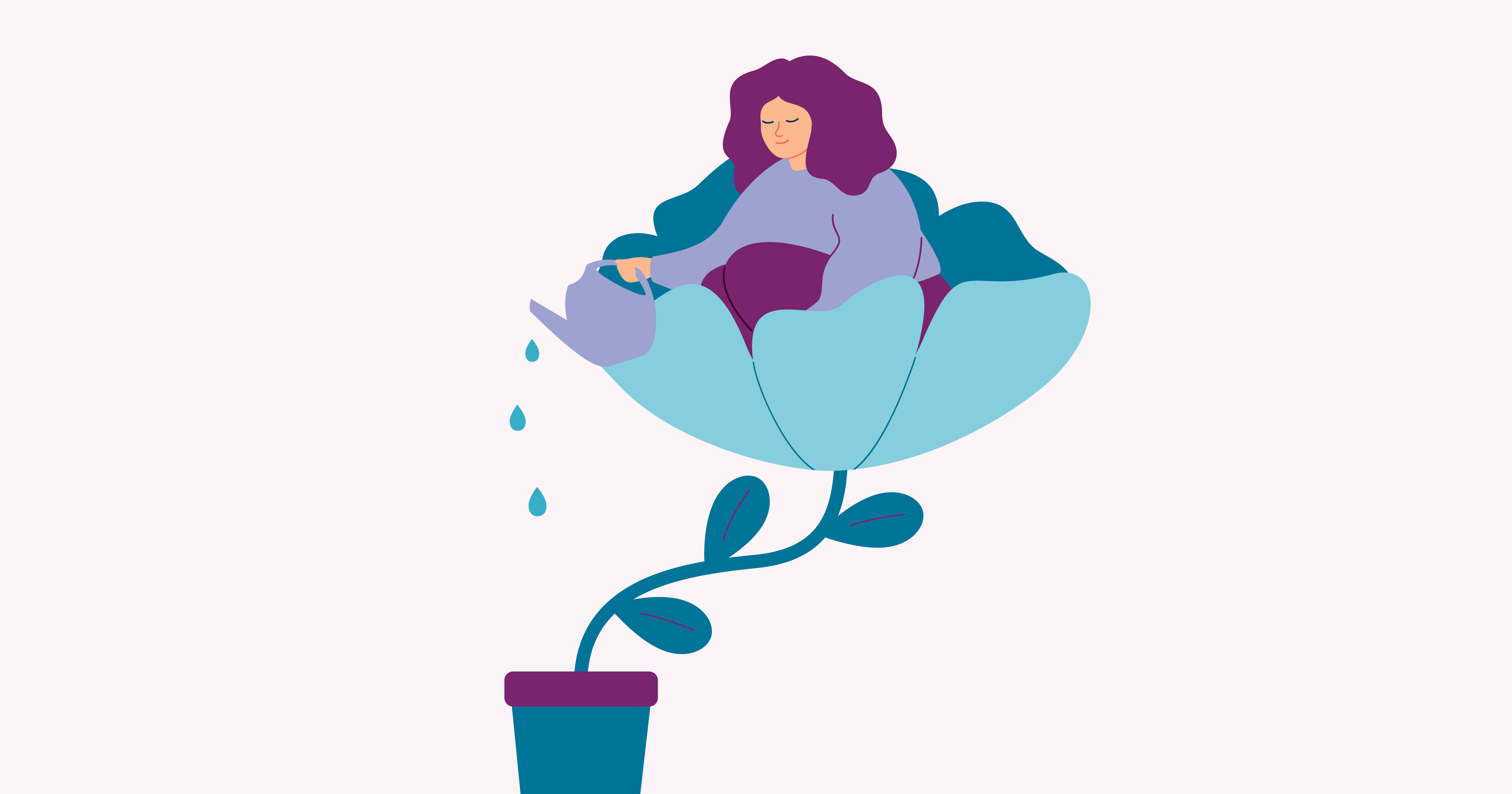
COVID-19, Mental Health
COVID-19 and Women’s Mental Health: A Candid Consult
The COVID-19 pandemic has taken a toll on the emotional and physical health of us all. Now, as we enter year three of the pandemic, studies continue to show that women are experiencing greater stress levels compared to men. In this edition of Candid Consult, Megan Lobsinger, a licensed professional counselor explores the connection between COVID-19 and our mental health and offers healthy ways to cope with stress.
1. Studies show women are experiencing a greater mental health strain during the pandemic than men. Why do you think that is?
I think so much of the mental health struggles women are facing now are due to the imbalance in responsibility for childcare, home care, and work. When suddenly all of those things are happening inside your home, it exponentially intensifies the problem.
As women, we also tend to put so much pressure on ourselves to be at 100% in every area of our lives. It’s just not possible right now, and something must give.
I encourage women to give themselves some grace as they go through this, and don’t be afraid to seek help!
2. How can a woman distinguish between normal levels of stress or anxiety that we’re all feeling and a more severe form of anxiety or depression?
The truth is, it’s very hard to distinguish between the different emotions all of us are going through right now. We have all experienced a chronic stress response since the beginning of the pandemic, and the fact is, our bodies were not made to deal with this stress for this long.
So many of the symptoms of anxiety or depression can mirror feelings of burnout like excessive worrying, feelings of isolation, and lack of motivation. It’s important to consider how your symptoms are impacting your ability to function. Are things that once seemed manageable now unmanageable to you?
If you’re having trouble getting out of bed and facing the day, these may be signs of moderate-to-severe depression. If you have racing thoughts that are keeping you up at night, this could be a slippery slope into chronic anxiety. And of course, if you are feeling any impulse to self-harm, it’s time to seek help immediately.
When it comes to therapy, it’s important to remember that sometimes even just a few sessions could help. It can help you to develop strategies to deal with the difficult emotions you’re facing. Whether it’s a short series of sessions or regular weekly sessions, there are so many ways to make therapy work for you.
3. What are some coping strategies you’d recommend for women experiencing feelings of burnout and stress right now?
There are a few different strategies I recommend to women to help them navigate challenges related to home life, work, and overall self-care.
- Build balance and boundaries around work. As best you can, make clear cut-off times for when your workday begins and ends, especially if you are working from home. Also, try building in some transitions. For example, build in 10 minutes at the start and end of each workday to reset. This could simply include setting your to-do list for the next day, reviewing and prioritizing your day, or finding another ritual that works for you.
- Set realistic expectations for your home life. Pay attention when you’re asking too much of yourself, and be willing to take a step back. For example, if your kids are out of school because daycare is closed, the house is probably going to be a mess, and that’s okay.
- Focus on nourishment. Self-care has become such a buzzword these days, that we may not even know what that means. When I think of self-care, I like to focus on nourishment. I encourage women to ask themselves, “what does nourishment look like for me today?” This can change from day to day. Some days it may look like exercise, and others it may look like rest. Show up for yourself and decide what will help you feel nourished today.
- Find ways to connect with others. Isolation is affecting all of us these days. It can be especially challenging if you’re pregnant and missing those opportunities to celebrate your happy news with your friends, family, or coworkers. It’s important to find ways to connect and celebrate our joyous moments whether that’s through a video call or a socially distanced gathering.
Of course, if you’re struggling there’s no better time to seek professional help. With many providers now offering virtual telehealth appointments, making time for mental healthcare has never been more accessible.
4. What other resources would you suggest to help women with their mental health?
In addition to seeking help from a mental health professional, there are a variety of wonderful resources available online to help you, no matter what you’re facing.
In general, I encourage women to explore Facebook for private support groups. I find that these are a great, low-commitment way to find support. You can listen to others’ stories of similar experiences, and participate as much as you’re comfortable.
For any woman who’s struggling with mental health concerns postpartum, I would recommend Postpartum Support International. In addition to online resources, they also offer regional support groups.
The National Suicide Prevention Hotline (800-273-8255) is also an incredible organization that offers support for those with suicidal thoughts, if you are worried about a friend or loved one, or if you would like emotional support.
Ultimately, I want women to know that they’re not alone. You don’t have to suffer in silence. Remember, mental health is health. Just as we focus on keeping up with our physical health, we need to keep tabs on our mental health too.
















